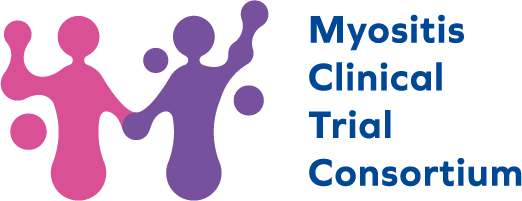Working group

Dermatomyositis (DM)
Patients with dermatomyositis present with typical cutaneous finding and proximal muscle involvement. The muscle biopsy showed characteristic finding of and the skin biopsy usually showed
The aim of clinical trial enrolling DM patients will therefore require to encompass the skin, muscle and also the lung perspective; meanwhile, the high prevalence of cancer in DM patients, especially patients presented with anti-TIF1gamma and anti-NXP2, is also the focus of research.

Antisynthetase syndrome (ASS)
Patients with dermatomyositis present with typical cutaneous finding and proximal muscle involvement. The muscle biopsy showed characteristic finding of and the skin biopsy usually showed
The aim of clinical trial enrolling DM patients will therefore require to encompass the skin, muscle and also the lung perspective; meanwhile, the high prevalence of cancer in DM patients, especially patients presented with anti-TIF1gamma and anti-NXP2, is also the focus of research.

Immune mediated necrotizing myositis (IMNM)
Patients with dermatomyositis present with typical cutaneous finding and proximal muscle involvement. The muscle biopsy showed characteristic finding of and the skin biopsy usually showed
The aim of clinical trial enrolling DM patients will therefore require to encompass the skin, muscle and also the lung perspective; meanwhile, the high prevalence of cancer in DM patients, especially patients presented with anti-TIF1gamma and anti-NXP2, is also the focus of research.

Juvenile dermatomyositis (JDM)
Patients with dermatomyositis present with typical cutaneous finding and proximal muscle involvement. The muscle biopsy showed characteristic finding of and the skin biopsy usually showed
The aim of clinical trial enrolling DM patients will therefore require to encompass the skin, muscle and also the lung perspective; meanwhile, the high prevalence of cancer in DM patients, especially patients presented with anti-TIF1gamma and anti-NXP2, is also the focus of research.
